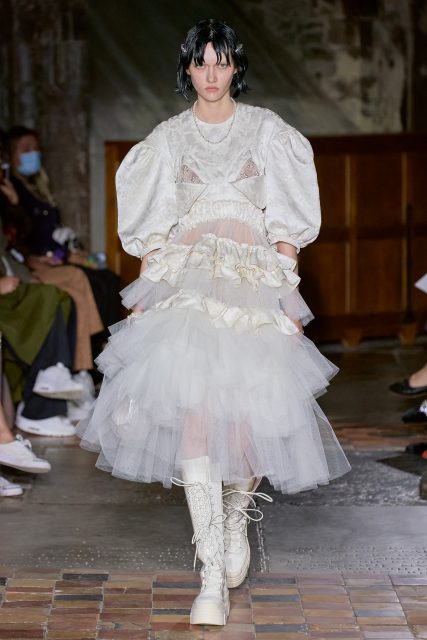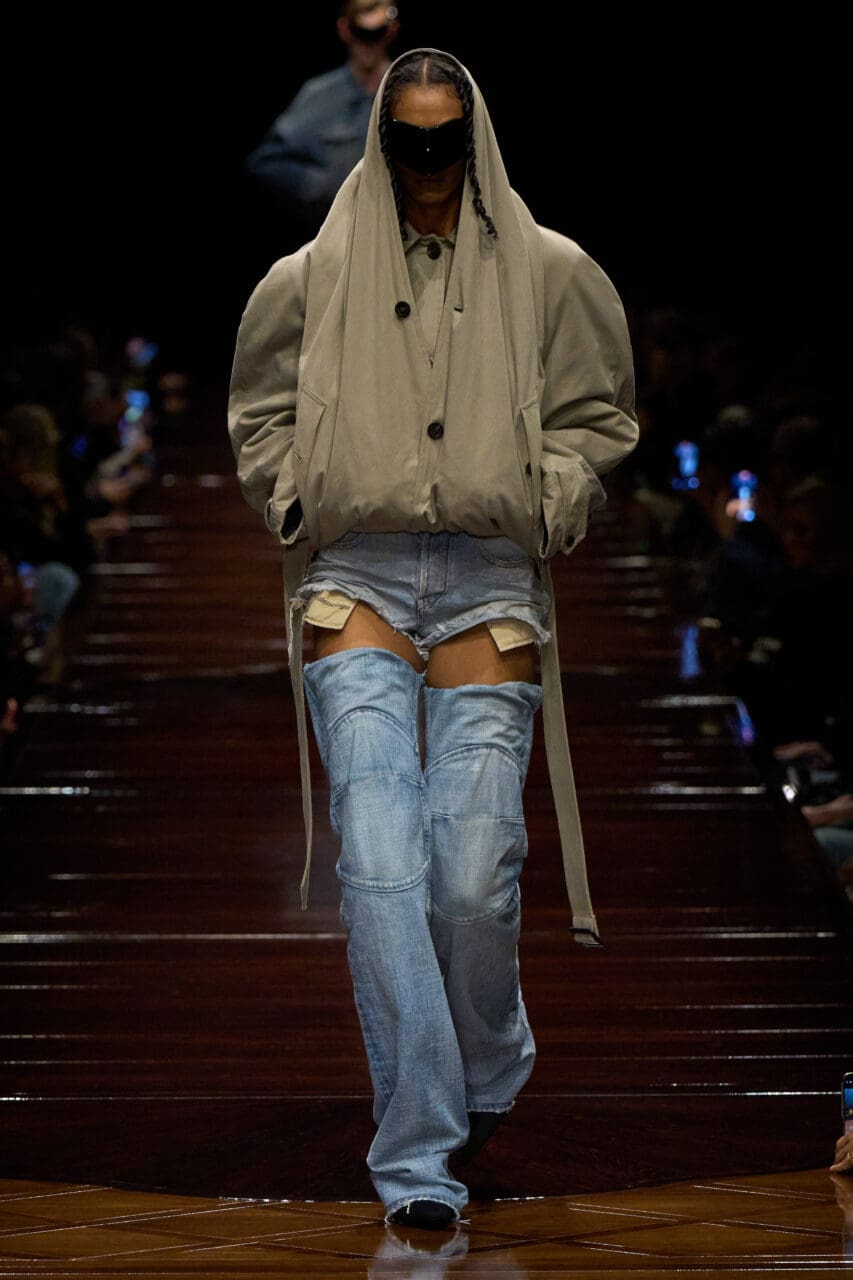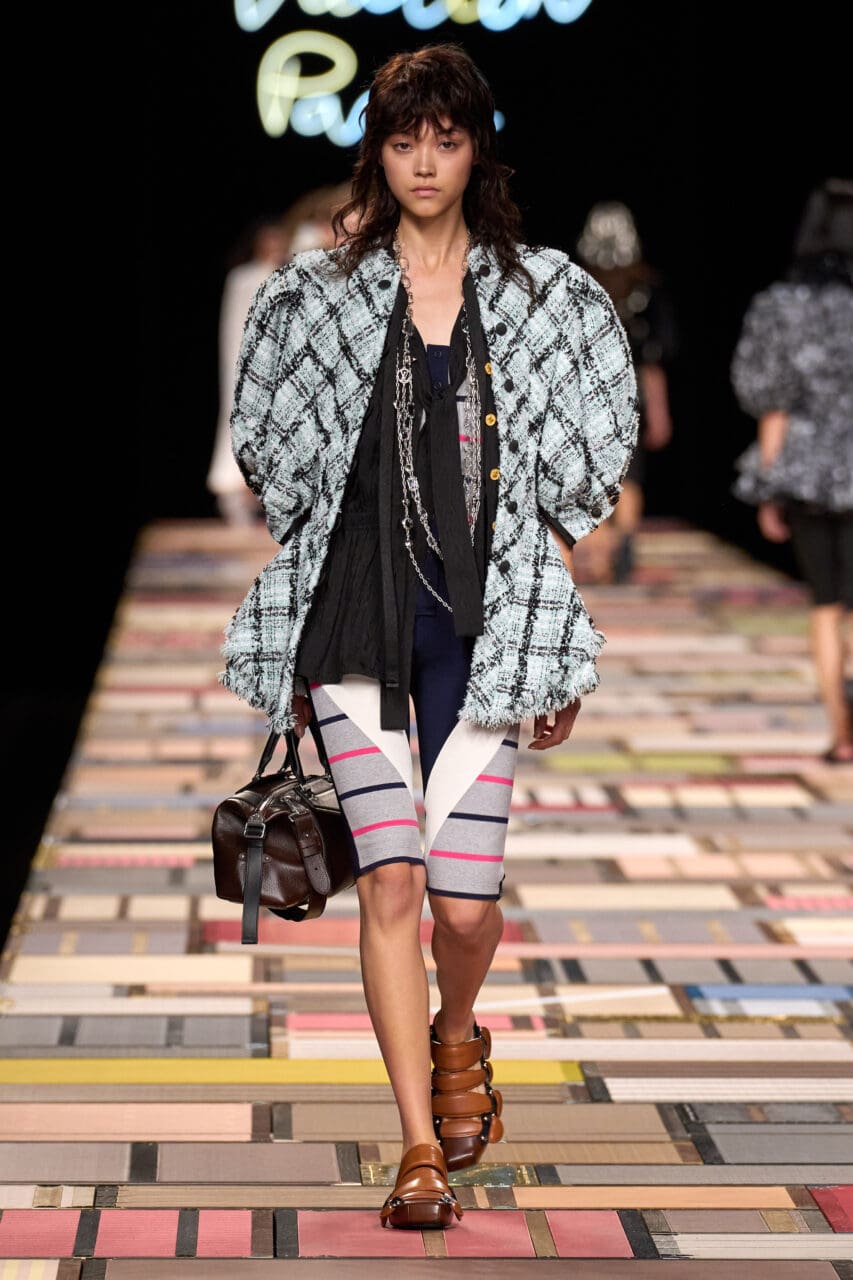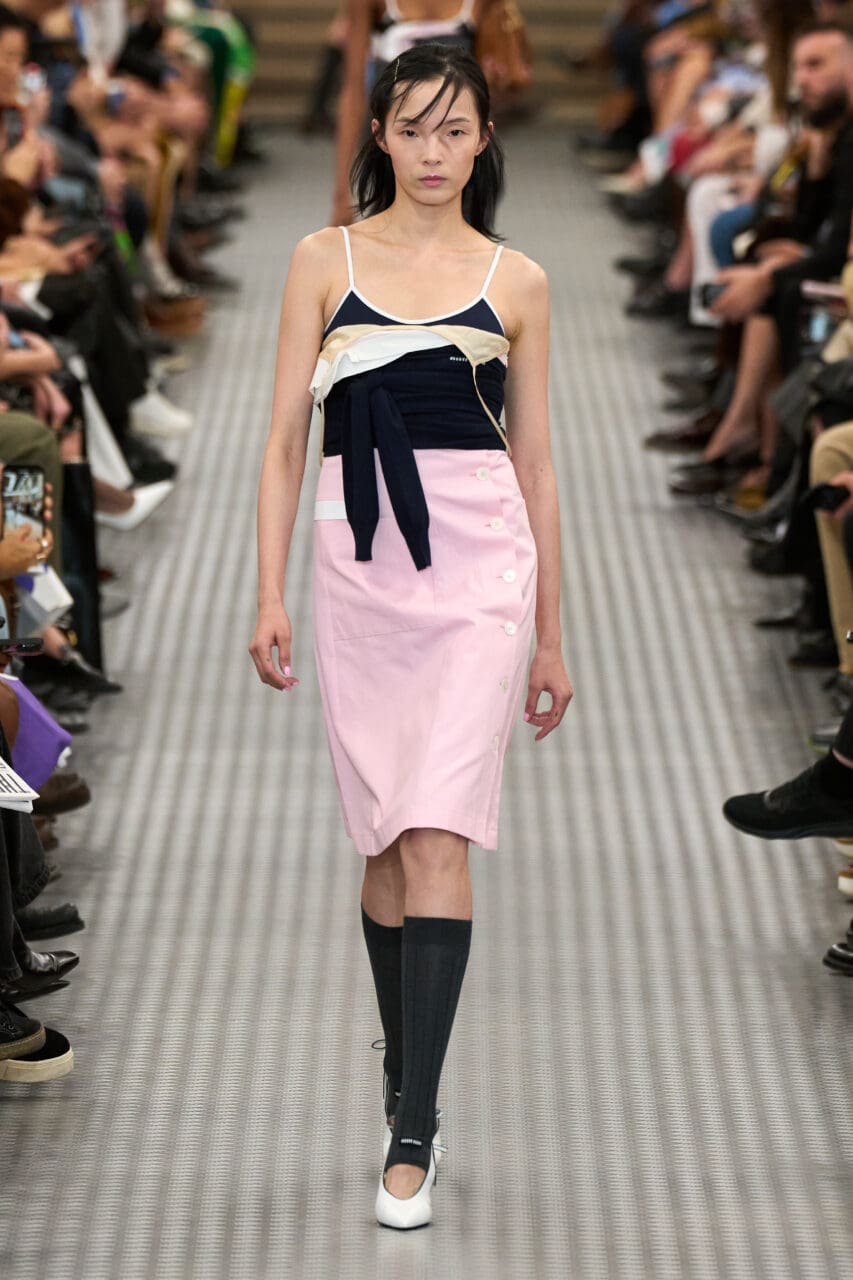In the days leading up to the Marni show, Francesco Risso and his team conducted fittings for 400 people. The models got the new spring collection, while the show’s performers and guests wore upcycled cotton separates hand-painted with colorful stripes. My pink and white camp shirt was numbered 219 of 800, and my pants 218 of 800; both were sewn with a large patch that read Marniphernalia: Miscellaneous Handpainted Treasures. Risso grew discouraged by the digital focus of the job during the lockdowns. His idea, he explained, “was about going back to the practice of what we do, which is making clothes for people, one to one.” He said the process was just as significant to him as the final result.
But, oh, what a final result. All season, we’ve been waiting for a designer who was up for the hard but necessary work of addressing the last year-and-a-half of pandemic and racial justice reckoning. Who acknowledged the changes the world has gone through in our mutual isolation, and, in turn, changed the way they do things. Tonight that designer was Risso, and what he came up with was less a runway show than it was a fashion happening.
His collaborators were many: Dev Hynes was responsible for the music, the poet Mykki Blanco did a spoken word performance, and the singer Zsela was joined by a heavenly sounding choir. On the program notes, Babak Radboy, who’s known for his work with Telfar Clemens, shared creative direction. The cast had the racial diversity, body inclusivity, and gender fluidity that’s become the norm in Telfar’s New York. “Finally, Milan woke up,” a colleague said on the way out the door.
Dressing the audience was central to the concept. By aligning us with the models, it helped make the crucial point Risso has picked up on that others here haven’t: that authenticity matters more than aspiration in 2021. And if it doesn’t, then it definitely resonates more. The spring collection’s two main motifs were stripes and daisies. “Stripes are strongly associated with direction, where daisies are new beginnings and resilience; they’re banal concepts,” he said. But in a palette of blues and yellows, they weren’t boring.
Navigating a spiral seating arrangement before reversing the circle on a central stage, the models wore slinky bias dresses in graphic rugby stripes, color-blocked blazers, Breton stripe ponchos, easy woven caftans, and shaggy cardigans and shawls, one of which was modeled by Risso himself: everyday clothes with a feeling of the hand. And then came the daisies, which felt more eccentric: naively embroidered on signature Marni shapes, intarsia’d on trompe l’oeil knits, and on the striking final look, hand-painted on a floor-length T-shirt dress.
“I kept thinking about sports, not because the collection has references to sports in its details, but because of how teams work—that union,” said Risso. “At the end of the day, who is our trainer? It’s our heartbeat, it synchronizes everyone.” As the models circled the crowd at the finale and Szela sang Dev Hynes’s moving original composition “Guide You Home,” the audience erupted in applause. It went on for some time. Risso got the reunion he was waiting for. And so did we.
Editor
Nicole PhelpsCredit
Lead Image: Courtesy of Marni





